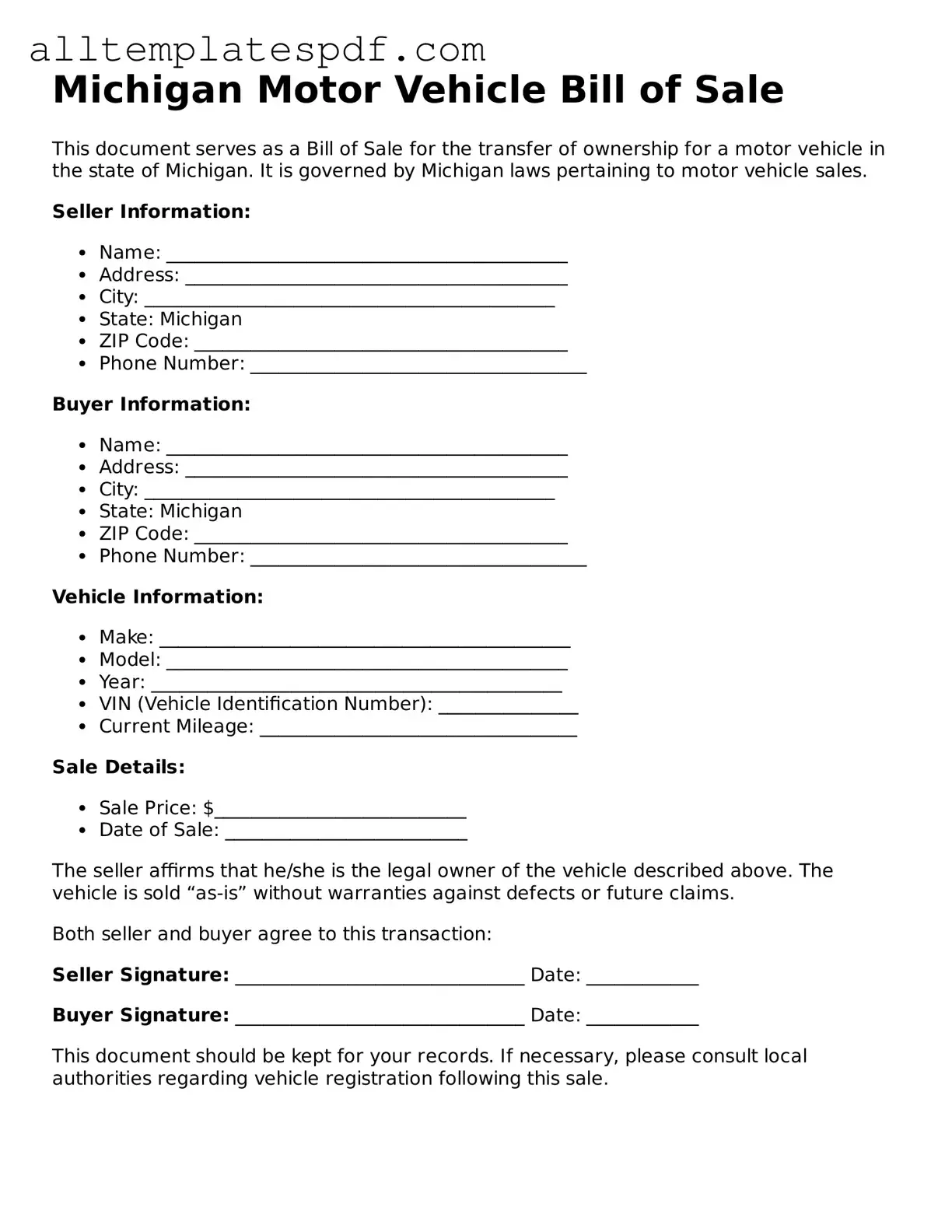When completing the Michigan Motor Vehicle Bill of Sale form, individuals often encounter several common pitfalls that can lead to complications down the line. One of the most frequent mistakes is the omission of essential details. Buyers and sellers sometimes forget to include critical information such as the vehicle identification number (VIN), make, model, and year of the vehicle. Without these details, the document may lack the necessary specificity to be legally binding.
Another common error involves the incorrect spelling of names or addresses. It might seem trivial, but a simple typo can create confusion and may complicate future transactions. Ensuring that all names and addresses are accurate is crucial for establishing clear ownership and preventing disputes.
Many people also fail to properly date the form. The date of the transaction is significant as it marks the point at which ownership transfers from the seller to the buyer. Without a date, the form may be considered incomplete, leading to potential issues with registration or title transfer.
Additionally, some individuals neglect to include the sale price of the vehicle. This omission can raise questions about the transaction's legitimacy. The sale price is important not only for record-keeping but also for tax purposes, as it may affect the amount of sales tax owed.
Another mistake is not having both parties sign the document. Both the buyer and seller must sign the Bill of Sale to validate the agreement. If one party’s signature is missing, the form could be deemed invalid, which could lead to complications when trying to register the vehicle.
People sometimes fail to provide a copy of the Bill of Sale to both parties. Each individual involved in the transaction should retain a copy for their records. This ensures that both parties have proof of the transaction, which can be useful in case of future disputes or questions regarding ownership.
Additionally, individuals may not be aware of the need for a notary. While not always required, having the Bill of Sale notarized can add an extra layer of security and authenticity to the document. This step can be particularly important in disputes over ownership or transaction details.
Another common oversight is the lack of a statement regarding the condition of the vehicle. Buyers benefit from knowing whether the vehicle is sold "as-is" or if any warranties are included. Clearly stating the vehicle's condition can help prevent misunderstandings and protect both parties.
Finally, some people forget to check for any liens on the vehicle. Before completing the sale, it is wise to ensure that the vehicle is free of any outstanding loans or claims. If a lien exists, the buyer may face unexpected legal issues after the purchase.

